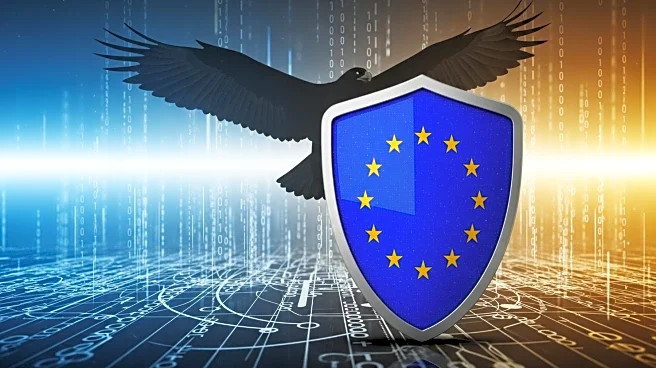What's Happening?
The European Commission has defended its Digital Services Act (DSA) following criticism from President Trump, who accused the EU of targeting American tech companies. The DSA, which regulates major online platforms, search engines, and e-commerce services, requires companies with over 45 million EU users to assess and limit risks such as misinformation and harm to minors. President Trump has labeled the legislation as censorship and claimed it imposes costs on U.S. companies. In response, Commission spokesperson Thomas Regnier stated that the DSA is neutral and applies to all platforms operating in the EU, regardless of their origin. Recent enforcement actions have been taken against companies like AliExpress, Temu, and TikTok, demonstrating the impartial application of the rules.
Why It's Important?
The dispute highlights ongoing tensions between the U.S. and EU over tech regulation, with potential implications for international trade and digital policy. The EU's stance on tech regulation could affect U.S. companies operating in Europe, potentially leading to increased compliance costs and operational changes. This situation underscores the broader debate on balancing regulation with innovation in the tech industry. The EU's firm position may influence other regions considering similar regulatory frameworks, impacting global tech governance and the operations of multinational tech firms.
What's Next?
The ongoing dialogue between the U.S. and EU regarding tech regulation is likely to continue, with potential diplomatic discussions aimed at resolving differences. U.S. tech companies may need to adapt their strategies to comply with EU regulations, while policymakers in both regions might explore avenues for cooperation or compromise. The situation could lead to further negotiations or adjustments in international trade agreements, particularly concerning digital services and technology.
Beyond the Headlines
The clash over the DSA raises questions about sovereignty in digital governance and the role of international cooperation in regulating global tech giants. Ethical considerations regarding data privacy, misinformation, and the protection of minors are central to the debate, reflecting broader societal concerns about the impact of technology on daily life. The EU's approach may set a precedent for other countries grappling with similar issues, potentially leading to a more fragmented global regulatory landscape.









